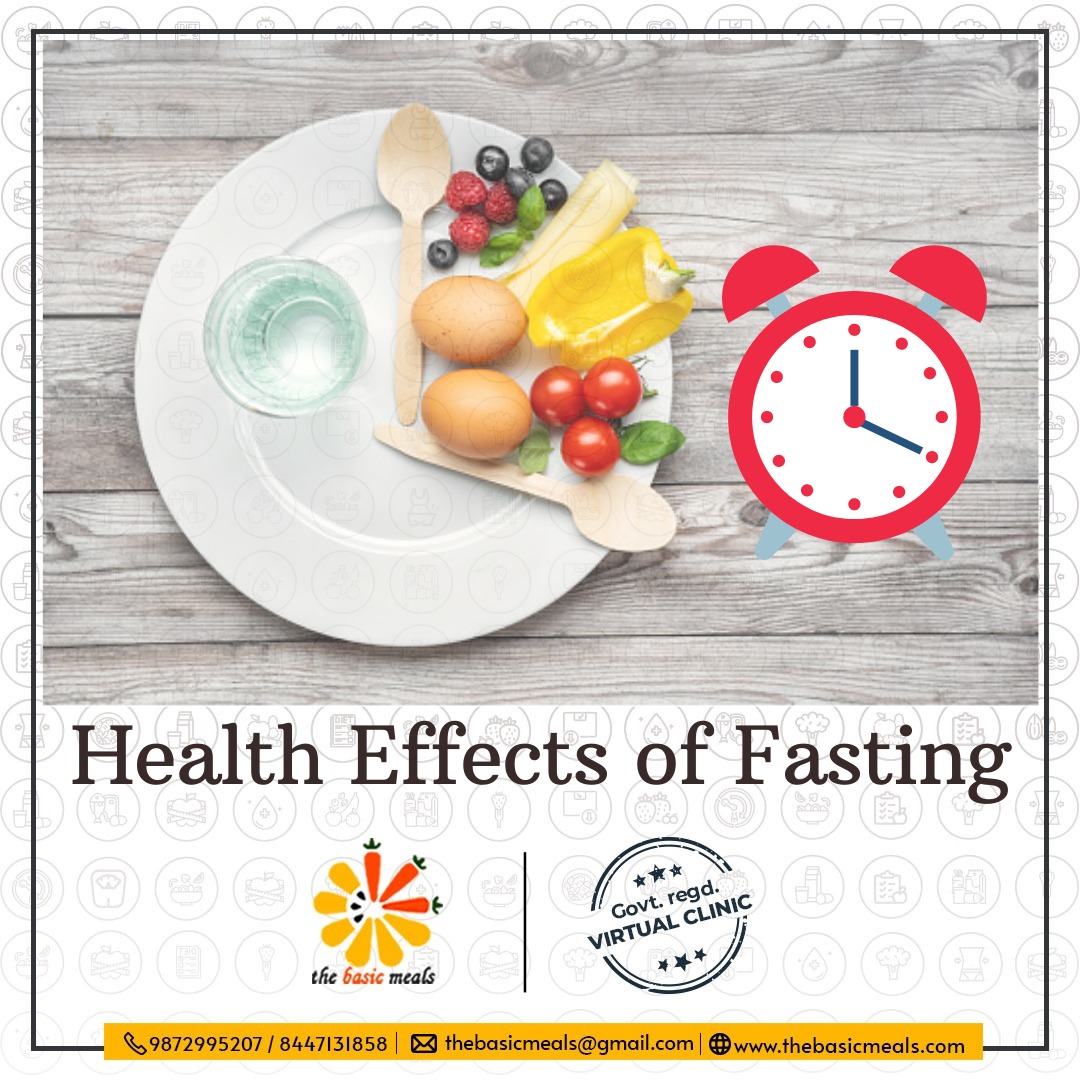
Health effects of fasting
Do you also fast in Navratri or Paryushan or Ramadan? Or tried fasting simply to lose weight? If yes, then this blog will help you learn a little bit about fasting and its effects on our bodies.
What is fasting?
When we restrict ourselves to eating only certain foods or no food at all for a particular period of time, that is called fasting. We may do it as a part of dieting for weight loss or religious reasons. Fasting is of various types and time durations. Some fasts are for less than a day, some even go up to a month or more.
Religious fasting examples can be Jain fasts, Ramadan fasts, Navratri fasts, etc. Nowadays, Intermittent fasting or time-restricted feeding is the new trend being followed for weight loss purposes.
Does fasting have any benefits?
We might have heard that this type of fast helps in weight loss, that diet helps in diabetes, etc. Or keeping a fast will detoxify our bodies. Yes, various studies have shown that fasting delays aging and increases life span. Some researches show that it helps in losing weight and provides other health benefits too.
Here are a few of them:
- Fasting helps to limit calorie intake and hence helps in weight loss
- Decreased blood pressure (BP)
- Improvements in pumping action of the heart
- Lowered levels of LDL or bad cholesterol
- Reduced level of fasting insulin, blood glucose
- Increased insulin sensitivity i.e., decreases the risk of diabetes
- In normal healthy humans without a cardiovascular risk, fasting could help to decrease inflammation in our bodies and oxidative stress which increases immunity
- It can improve brain function such as memory
- Fasting can slow down ageing, prevent the development of diabetes, thyroid disorders, hypertension and heart disease and increase the chances of a long and healthy life.
All these potential benefits, however, must be weighed against the potential risks. There have been many sides effects reported in medical research.These include:
- Nausea and vomiting
- Thinning of hair
- Nervous and kidney issues
- Irregularmenses
- Abnormal liver function tests and decreased bone density.
For how long should we fast?
We can follow religious fasts once in a while. But we should stay from the different diet or fasting trends in order to lose weight. Whether it is the keto diet or intermittent fasting, they can cause more harm than good if we follow it for a long time.
The keto diet was originally made for patients with epilepsy or seizures. Similarly, all these fasts and diets are experimental models which may or may not have benefits for different people.
What happens if we follow a restrictive diet or fast for a long period of time?
- We might become deficient in many important nutrients in our body which can cause problems
- We can start feeling tired or low on energy
- Our system might lose proteins i.e., muscle mass from our body
- Our blood haemoglobin levels or sugar levels may drop which isn’t healthy
- Hair fall or thinning of hair might become a problem for us, etc.
We should also know that fasting is not for everybody. For e.g.,
- If people have a history of eating disorders, fasting may not be a good idea. Intermittent fasting has been known to trigger binge eating behaviour, i.e., eating a lot at one time, which can cause complications of its own.
- Individuals with diabetes who take medications and insulin may have severely low blood sugar levels, which may be life-threatening.
- Some individuals resort to “dry fasting,” which means they do not drink water nor do they eat solids for the periods of fasting. This trend is dangerous because it can lead to severe dehydration, exhaustion, electrolyte imbalance, heatstroke and headaches. It is also damaging to the kidneys.
- Severe low-calorie diets can often push a person into dangerously low body weight.
Fasting vs a well-balanced diet
A well-balanced healthy diet is the only kind of diet that is sustainable. By following a balanced diet, we will have all the nutrients required and there will not be any deficiencies.
For weight loss, some calorie restriction is required, but it should be well planned according to the individual. Along with a healthy diet, exercise, sleep, mental health, intake of processed and fried foods, all determine our weight.
Therefore, whenever there is some new diet or fast trend that you might want to follow, always ask yourself, ‘Is this diet sustainable? Can I follow this diet for the rest of my life?’ If not, then we should stick to our healthy home-based diet.
In conclusion, even if we follow any type of fasts, long fasts of several weeks or more (religious or caloric restriction for weight loss), should not be followed to avoid any problems. In the long run, only a well-balanced diet will keep us healthy for life.
For customized healthy diet plans
Visit http://thebasicmeals.com/
Email us @
Or call @ +919872995207/+918447131858

